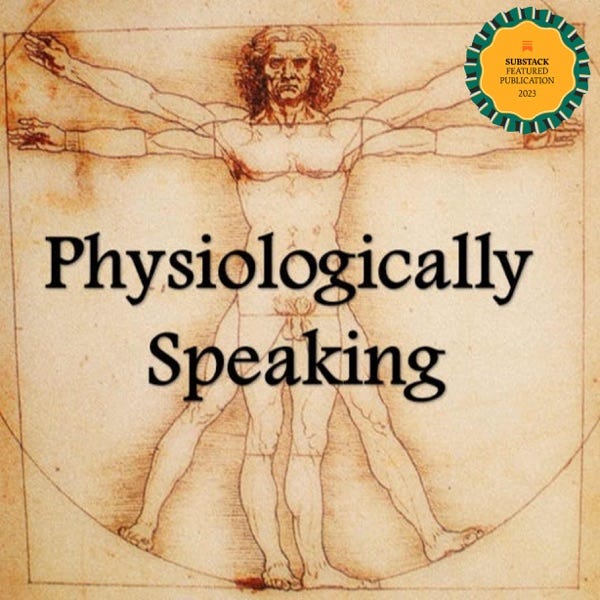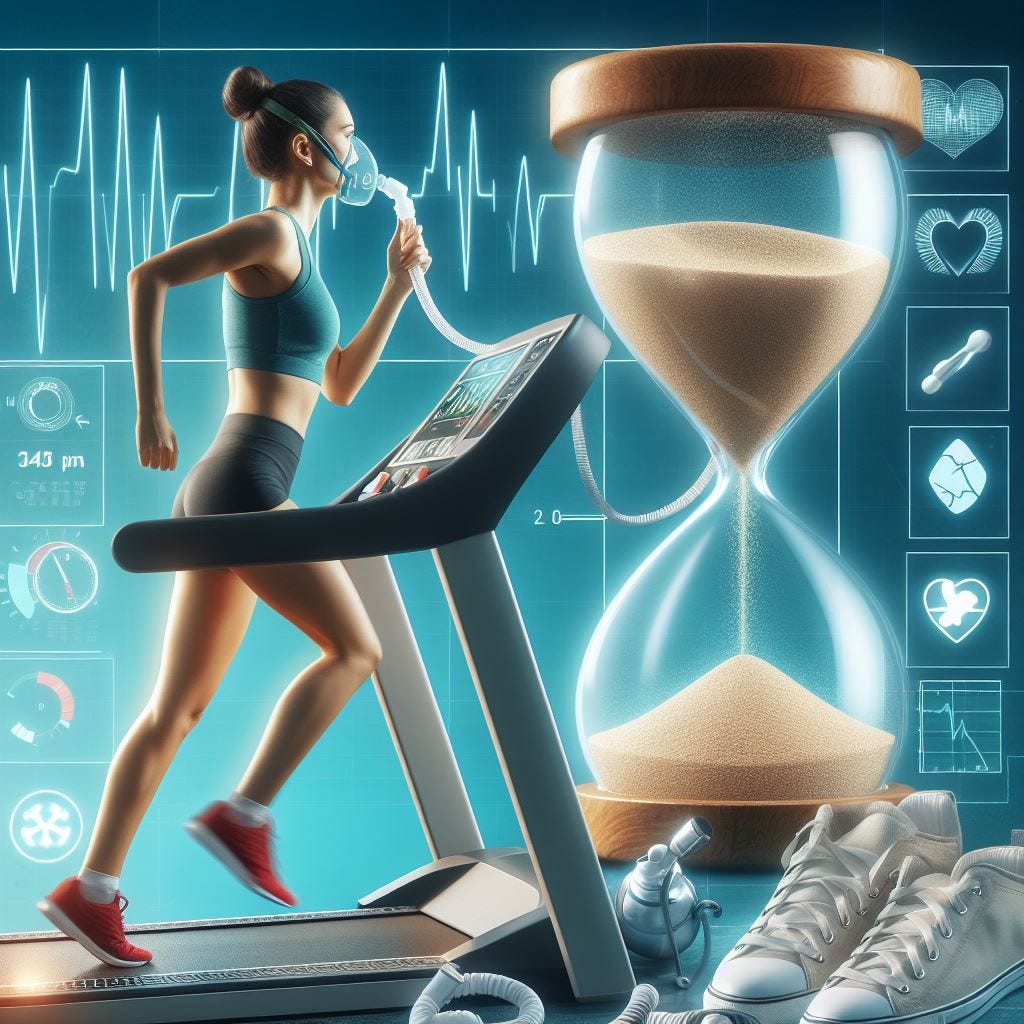Physiologically Speaking Q&A #1: CGMs, Time-restricted Eating, Endurance Training Structure, and More!
Description
Greetings!
Today I'm releasing the first installment of an audience question and answer!
This Q&A includes questions that I've received throughout the previous month related to nutrition, health, science, my routines, my training, etc.
These are questions I’ve received from my Substack subscribers, people on X who may send me direct messages, or question I’ve received about things I’ve posted on social media or my blog.
Physiologically Speaking is a reader-supported publication. To receive new posts and support my work, consider becoming a free or paid subscriber.
For this Q&A, I took a sampling of questions that I would be able to expand upon and provide some more context about, but also things that I thought you all might find interesting to know the answers to.
If you enjoy this Q&A, I would love to make this a monthly thing and at some point, I may start to submit requests for questions from my audience.
For now, the Q&As will just be a compilation of random questions that I have received.
This Q&A will be free to all subscribers so you can get a taste of what future Q&As might look like.
Watch the video above or, if you’re so inclined, I’ve provided a (rough) draft of the questions and my responses below! You can also download/listen to the podcast on Apple Podcasts.
Alright, let’s get to your questions.
Brady, how useful do you find CGMs? I have used them on and off for a while, and I have very mixed feelings. Sometimes I think they make eating more difficult. (Peter) Attia and others don't think that one should exceed a blood glucose of 140. I'm not sure that makes sense.
Tl;dr: Continuous glucose monitors can be extremely insightful to use for a month or two, but unless you have diabetes or are at a high risk of having diabetes, it’s probably not something you need to use all the time. I learned a lot about my body and responses to food and exercise by using a CGM For a month.
CGM is referring to continuous glucose monitoring. These are or once were only available to individuals with diabetes as a way to manage their glucose control. CGMs are a device placed on the back of your arm. A little needle is inserted and it goes into your interstitial space and it measures not blood glucose, but rather interstitial glucose.
Nonetheless, it can give a 24-hour reading of your blood glucose concentrations. CGMs are a lot better to use than just say a snapshot of your blood glucose after a meal. They allow you to see what your blood glucose levels are doing throughout the day.
So how useful do I find that they are?
I think that everyone should probably use a CGM at least once for maybe two weeks to a month or maybe up to two months. I think they can be very valuable, perhaps invaluable tools for learning about how your body responds to certain foods, learning about how your body responds to exercise or sauna or different types of stresses, and even what your blood glucose levels look like before you go to sleep at night or while you're sleeping or when you wake up in the morning.
I think that using a CGM for a month or two could give you an insight into here's what happens to my blood glucose when I eat some french fries or here's what happens when I'm fasted or you know in the middle of a high-intensity workout.
I used a CGM for about two weeks maybe even more like a month and I learned some interesting things. The most interesting thing was that not a lot of things food-wise, I guess, raised my blood glucose as much as I thought they might, maybe due to my exercise levels or the fact that, I mean, generally I tend to eat fairly healthy even though I do, you know, eat some carbohydrates and sugar from time to time.
But I found that it was very useful. I learned a lot, but I don't know if it's something that I would always use because in a way it did seem to get in the way of, or I guess make eating a little bit more difficult. I think that CGMs may not be good for people who are prone to having an eating disorder or who have tendencies to maybe avoid foods just because they're going to elevate your blood glucose a little bit.
An increase in blood glucose in response to a meal is a normal physiological response. And of course, if you measure your glucose two hours after a meal and it's over 140 or near 200, that could be a sign that you might have diabetes. But if your glucose levels elevate to 120 in the 30 minutes after a meal and then start to decline, that's a normal response. That's what's going to happen when you eat something that contains carbohydrates and it's probably nothing to be scared of. I don't think that transient rises in blood glucose are dangerous per se.
So again, I think that using it all the time, may, at least for me, it would probably be a nuisance and kind of a burden because I would always just be paying attention to my blood glucose.
And I just don't think it's probably healthy, at least for someone like me in that case.
If you're worried about diabetes or diabetes runs in your family, or you're worried about metabolic issues, I think CGMs can be super valuable.
Regarding the last point on Attia and others, not thinking somebody should exceed 140, you know, I won't necessarily comment on that. I'm not a clinician, I'm not a physician, but again,
I think that, you know, elevations in blood glucose in an otherwise healthy person are just a normal response and they're not necessarily indicative of disease or underlying pathophysiology.
So short answer to that question is I'd recommend, you know, CGMs are becoming available over the counter. I think the FDA just approved the first one of those, so we're all going to be able to have access to it probably very soon. I would recommend that most people, you know, try one out for a month or two.
Brady, do you have a sense of which benefits of intermittent fasting or time-restricted eating arise from going a certain amount of hours without eating and which arise from having a certain amount of acute energy deficit? This is a practical/lifestyle question for many endurance athletes because if most of the benefits come from an energy deficit, then I could just do a long run or workout. bank a 1,000 to 2,000 deficit plus another from my resting metabolic rate, maybe skip breakfast and have a 3,000 calorie deficit by lunchtime.
Tl;dr: For weight loss, it’s all about the energy deficit. However, time-restricted eating may have unique benefits for metabolic health independent of weight loss.
I think a shorter version of this question is: Are there unique benefits to intermittent fasting independent of calorie restriction? Or is it all just about calorie restriction? Are all of the benefits just due to calorie restriction?
I think it's a little bit of both, but I also think that it depends on what your goals are.
When it comes to just weight loss, I think that it's all about your energy deficit and it's all about calories. This is evidenced by the fact that when we look at randomized controlled trials or meta-analyses of randomized controlled trials, comparing time-restricted eating versus a calorie-restricted diet that doesn't have time-restricted eating, both tend to result in similar amounts of weight loss. Neither of them seems to be better for weight loss.
Time-restricted eating does appear to be an effective way of reducing calories because when you limit the window in which you're able to eat, say to four to six hours during the day, you're probably just going to eat less naturally versus if you allowed yourself 10 to 12 hours to eat during the day, of course.
So for some, I think time-restricted eating represents this way to artificially or not artificially, but naturally reduce how many calories they're eating. But if you're trying to lose weight, it's all about just energy deficit and however you achieve that, you know, it's kind of up to you.
Where I think time-restricted eating may have unique benefits though is in terms of fat-burning ability, increasing mitochondrial content, mitochondrial enzymes, and improving your ability to burn fat.
I think that going, say, 10 to 12 hours per day, maybe even more, maybe 12 to 16 hours per day, doing that sort of a 16-8 time-restricted eating type of thing can be beneficial in its own right, independent of calories for certain metabolic benefits there. I think time-restricted eating can be great for that.
But again, if your goal is just to lose weight, there doesn't seem to be anything special about time-restricted eating.
What are your thoughts on following training plans by distance versus time? For example, a 7-, 9-, or 12-mile run in a training plan is very different for someone who averages 7 minutes per mile versus someone who averages 12 minutes per mile. So should the 10 to 12-minute miler be running the same distance or the same time?
Tl;dr: If you’re training to race a particular distance, basing your training on distance makes the most sense.
This is a great question. I think that overall, time should probably be a consideration maybe for someone who is just starting out. Say, you know, I want to increase the time that I'm running.
We use running in this case since that was used in the example.
I want to increase the time that I'm running per week from, you know, one hour to three hours.
But I think that I always like to train by distance and this would kind of be my
opinion just based on how I like to train but also I think it makes logical sense that if you're training for a particular race. Take somebody who's trained for a marathon I guess wel




















